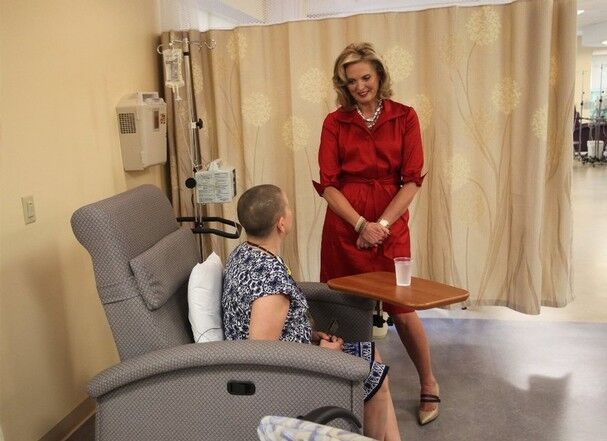Today, I bring you part three of my journey with multiple sclerosis. The disease completely changed my life; and unexpectedly, mostly for the better. I never thought I would say those words when first diagnosed but here we are. You can read part one here, and part two here.
Those years after the Olympics were extraordinary ones for Mitt and me. With careful management, my MS went into almost a full remission. Mitt was elected Governor of Massachusetts, and, as we all know, ran for president a few times. I was so proud of him when he accepted the Republican Party’s nomination for president in 2012.
My greatest memory of the campaign was traveling across the country and meeting voters, spending time with them and really getting to know them. It was the honor of my lifetime.
On the campaign trail, people with neurologic diseases would seek me out at events to encourage me and thank me for giving a voice to those suffering with these devastating diseases. Often, they had been standing outside in the heat and elements for a long time and when I would reach them, sometimes they would collapse. The love, sacrifice and generosity they offered during that time touched me deeply. And maybe your trials – and the way in which you endure through them – are also helping you be an inspiration to those around you who are going through similar things. Sometimes, like the experiences I
had on the campaign trail, we are able to see a glimpse of the hope we offer. Sometimes we aren’t. But in either case, the ability to lift up others is a wonderful gift.
Throughout the campaign, I stayed in touch with Dr. Weiner. We would often talk about his efforts to advance treatments and cures in the neurologic disease space. During one of those conversations, he told me that an Alzheimer’s vaccine they were working on had produced some exciting results in the lab and they were getting ready to test it. An Alzheimer’s vaccine? That really caught my attention. I knew it could change millions of lives and save billions of dollars.
As I thought through the initiatives I would focus on should I have the honor to serve as First Lady, I knew that I wanted to raise awareness – and help to find treatments and cures – for those afflicted with neurologic diseases. So many people suffering from MS, ALS, Parkinson’s or Alzheimer’s had showed up to support me over the years, it was now my turn to show up for them.
And then we lost the election. Among those things that saddened me most was the thought of what we might have been able to do to combat neurologic diseases if we had won. When I went to see Dr. Weiner for my annual evaluation, we started talking about “what might have been.” It occurred to us that we might still be able to work together. We knew that the effort might not be as big, but it would be something.
[to be continued next month]


